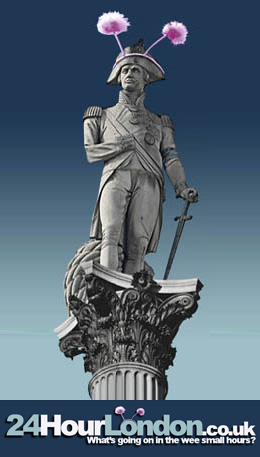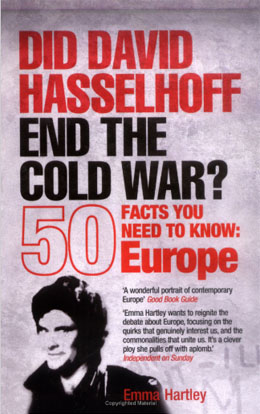Dave Swarbrick chases unicorns. Our hour-long conversation was notable for glimpses of a series of unattainable objects of desire.
But first he wanted to make it clear that he is in good health. "I'm not so bad at all," Fairport Convention's former fiddler said, in a tone that lightly implied that even if he was, he was buggered if he was going to tell me. "The hearing's pretty good these days: I've had the [hearing] aids for a long, long time, which has given me a chance to get used to them. I had the double lung transplant in 2004 but I was asleep so I don't remember much about that... I like to say that I'm mainly 72 years old but parts of me are much younger. Tell them all that I'm ever so good."
(Here he is looking impressively healthy in a snap taken recently by Chris Bates. Our interview was on the telephone, he was verbally on fine form and would never have guessed he was using hearing aids, except to say that there are few people I know in their 70s with hearing that good.)
In fact he's embarking on a world tour, beginning with the Cambridge festival with Martin Carthy this July, a series of gigs in Canada in August, followed by a UK tour with Carthy later this year and then in the new year he's going to South Africa.
"That's not like anything I've tackled before," he said. "There are 53 of us, musicians from all over the world and we're each going over there to stay for a week and spend time with an African musician - could be folk or jazz, anything. You team up as buddies, eat together and what have you. Then you go out and meet some of the up-and-coming artists who live near by. At the end of the week a film is made by a South African TV station and with any luck it should go all round the world."
He's also recently agreed to become patron of Folkstock, a September festival - new this year - being set up by the redoubtable Helen Meissner, whose impressive badgering skills also roped me in to do this interview. As a chartered badgerer myself I can recommend Helen to anyone who wants something folky done. Once named Hertfordshire's businesswoman of the year, she has both Swarb and I on the run, which in this context is a good thing. There is also a solo tour planned for next year under the Folkstock umbrella.
I once heard Dave say in an interview that the reason he loves the fiddle is because it allows him to be "dirty" and after a few minutes consideration came to the conclusion that he meant musically? "Yes. If you have just the one line of melody you can play it however you want. Once you make a fiddle electric you can do nearly anything with it: there are all kinds of gadgets that will really dirty it up. So if there's something enchanting, like Tam Lin, that requires you to be off-the-wall, spooky and mysterious you can really do it with a wah-wah pedal."
He's fond of his gadgets. We'd already established that he uses an iPad and likes a piece of software called Sibelius, which can be used for composing. And then there are the fiddles themselves. "Every violin player is searching for the perfect fiddle. But it doesn't exist." Unicorn number one crashed around in the undergrowth a little way off.
Is that a kind of mirage then?
"The fiddle is a very expensive mirage because it leads you on to try better and better instruments. I was watching a film about Heifetz the other night and there was some footage of him playing in the 1920s. One of the many things that struck me about him was that whichever period of his life the footage was from, he always played the same fiddle."
So not every violinist embarks on this quest?
"Ah... You don't know how many he had at home. They are just wonderful things, fiddles. They're not like any other instrument: a violin is like a living thing. It changes over its life but then you change as well. Even if you have normal hearing, you're not going to have the same hearing on a dry day as on a wet day. Your ears change slightly all the time."
He'd clearly given the matter a great deal of thought, especially as the loudness of his electric fiddle has been partially blamed for his hearing loss. Life can be cruel.
So what was with the three-year trip to Australia in 1994? "I went there because I got married and I came back because I got divorced. I loved Australia."
There was the sound of hooves again...
"I went there a lot. And knew it even before I went there because I used to record with AL Lloyd and he would tell me about it. We made three or four albums of Australian songs together and then I finally went there in 1971 - and about 20 times after that. I met an Australian woman called Paula Crane at a gig one day and we fell in love. And I thought 'That's handy because I like Australia'.
"She was an heiress to a fortune that was made in plugs, tiles and mines, and I'd say the money had something to do with the breakup. It made the arguments a touch more intense. And when we split up I got a place on my own in the Blue mountains in New South Wales. I was being a bit of a hippy but the eighteen months I had there were wonderful - the scenery was just breathtaking. I'd come back to the UK and tour a bit and then go back - the money would go so much further over there. You could buy a whole tray of avocados for three dollars.
"So I lived in the mountains in this house that was built on stilts to keep the snakes out. Australia has the top eight most dangerous snakes in the world, you know? And there were funnelweb spiders. But none of them got into the house the whole time I was there. Then after a while it started to pall and I wanted to come home... they would have made me leave eventually anyway, when my visa ran out."
Apparently being divorced from an Aussie doesn't cut much ice with immigration.
"It was not an amicable split but I saw her again three or four years back and I don't regret marrying her at all. I thought it was worth a try... and I had some wonderful times, saw some fantastic wildlife. You know, once I counted 26 cockatoos in a tree in my garden. I really really love the place."
When he came back to Blighty he lived with Alistair Hulett in Herefordshire for a while and there was revolutionary politics in the air at their house. I asked whether there are any protest songs from that period and what he made of the relative quietness of the folk scene on the subject of our present ills... I can only think of Show of Hands' Arrogance, Ignorance and Greed, though would be happy to stand corrected.
"I must be contented these days," he mused. "I haven't written any protest songs for a while now. They would have to come from the young... There's Billy Bragg, but he's not really young... sorry Billy. I don't know what the young are doing really: they should be writing protest songs. There's a lot to protest about.
"The difference between when I started and now is that back then nobody had really heard of folk music, they didn't really know what it was. It used to be all about Centre 42, which was related to the TUC resolution that the arts should be taken to the masses. The trouble was that the masses didn't want it."
This rang a bell with me because I grew up partly in Norfolk and we read Arnold Wesker's Roots at school, which was about this exact thing.
"But now folk music is so prevalent among the young that it's become cut-throat. Not cut-throat in a nasty way. Everyone seems very nice, they're a lovely bunch of kids. But there are a lot of them all chasing after the same gigs, so they have to be a bit careful not to upset anybody. But someone who really upset everybody... they could still succeed."
Wise words.
"The trouble is that the media is the same now as it was in the old days. If you were a communist you didn't get much airplay."
Well, that was a long time ago - before the end of the cold war changed a lot of things - and a lot of anger with the system has become mainstream since 2008. But Swarb's right. You don't see a lot of anger in the folk scene these days - unless it's of the peevish variety on internet message boards - and it could be fear of upsetting people that holds the youngsters back. That, and the vast amount of debt they have all accumulated as a result of getting a university level education. Now there's something to get angry about: being financially oppressed by your parents' generation.
The conversation turned to Sandy Denny.
"You've got to understand, I have never got over her dying," he said. "It's very hard to listen to her stuff. I did these two Sandy tours and I found it very hard. You know it occurred to me the other day that if she was alive now she would have grandchildren, possibly she'd be a great grandmother... and it was very weird. It seems weird because Sandy was one of those who fell in the war. 'Age shall not weary them as we that are left grow old' and all that. She'll never be any older than she was." Pics below courtesy of the lovely Andrew Batt and www.sandydenny.org.uk
Were you close?
"Very close."
Were you her boyfriend?
"Yes, I was her boyfriend... Well, I wouldn't call myself a boyfriend. It was more casual than that. She had a fierce upbringing, you know. Her mother was a fierce woman and Sandy herself was very unsure of what she was doing. She didn't have a lot of confidence. She was the kind of person who if you said 'I really liked that, Sandy' she would say 'Why, didn't you like the other?'
"She was very loving and super smart, she saw through people very quickly: she was a real character."
A lot of her lyrics are about loneliness.
"Well yes. But to an extent most touring musicians are lonely and if you are a woman it's worse because probably you're torn between being at home and being on the road. Admittedly Sandy often toured with her husband... but that brought its own difficulties. I've been in bands with other women and it's always been difficult for them. I mean, what do they do? Do they become one of the boys?"
So what's your idea of a good time these days?
"Probably going out antiquing. I collect English watercolours, from Georgian stuff in 1750 to 1900. It was a glorious time for English watercolours and you'd be surprised how cheaply you can pick them up. I love to go out hunting and then finding a frame for them. One day I'll find a Samuel Palmer. He lived from 1805-81."
A white horsey flash thundered past, very close this time, as he spelled out the painter's name.
No Dave Swarbrick interview is complete without a question about the Telegraph obituary that was wrongly published when he was ill in hospital with emphysema in 1999. I'd heard that he took to selling signed copies of it at his gigs?
"I printed them out and sold autographed copies with RIP on them for one or two pounds. But then my partner got a bit superstitious about it and I got a letter from the Telegraph telling me to stop because it was a breach of their copyright."
Cheek!
"Yes. So I wrote back saying that I loved legal trouble and they should bring it on. A paper in Yorkshire printed a whole big story about it..."
I explained that I used to work at the Telegraph and vaguely remembered being there when the whole thing happened. He asked whether it wasn't a bit odd for someone with my family background to be working at a right-wing paper and I ended up explaining - as I often do - that the division of labour is such on a newspaper that unless you happen to work on the comment desk your personal politics are irrelevant most of the time.
"I've got a copy of the Telegraph in front of me right now," he admitted. "I buy it for the crossword."
I'd been told to ask him about the Dalai Lama story...
"I was in hospital, post-op, and one of the Fairport fellers, Chris Leslie who plays the fiddle, was in Australia with the band at a festival. And one of the events was a bunch of Tibetan monks doing a demo of something or other. At the time there had just been a benefit for me at Birmingham town hall and Chris was wearing a T-shirt saying 'Swarb Aid' and sitting in the front row. After the event one of the monks came up to Chris and asked him 'How is Swarb?' And Chris was absolutely gobsmacked and said 'I think he's OK, recovering in the hospital.' And the monk said 'Please tell him that the Dalai Lama is praying for him'."
Hmmm.
"And Chris comes back and he's all full of it and he tells my partner and somehow - I don't know how - it ended up in the local paper in Coventry. "Dalai Lama prays for Swarb" I had a particular consultant who was always telling me to walk around the ward, so I put that cutting over my bed in an attempt to get him off my back. Walking around the ward was very tiring..."
And I hear you've been inducted into the Coventry Hall of Fame?
"Yes! It's a plaque and it went up about three months ago in the two-tone complex on the Walsgrave Road. There was a little ceremony, there was a group of us. We got the plaque and gave a little speech, then stood around in the rain and had our photo taken. I asked them to only put it 3'6'' up the wall so I can go along and polish it now and again."
And how is the biography coming along? Is your wife still writing it?
"It's all been handed over to Dr Jason Wilson in Canada, who is a published author and a serious writer. Anyone who's got any information they think should be included can still hand it over to us but we'll forward it to him. I didn't want it to just be made up of loads of anecdotes, you see? I wanted something more serious about where the music came from... so it will probably come out after I'm gone."
Why? Are you planning to go any time soon?
"No. But I think he might be a bit of a slow worker. He's an academic."
* If you'd like to receive posts from this blog directly into your Facebook newsfeed, you could *like* its Facebook page and then use the drop-down menu to indicate that it's one of your "interests". This will enhance the possibility that you'll get them. You could also follow me on Twitter @emma1hartley






No comments:
Post a Comment